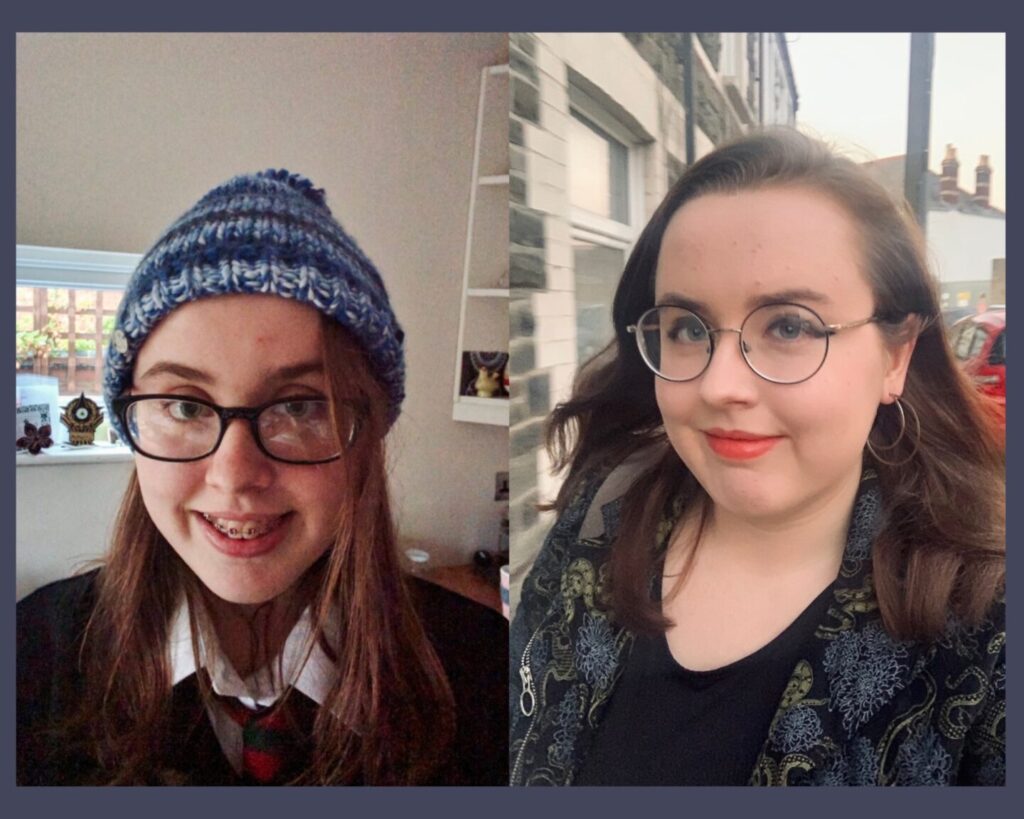Hi! I’m Katherine, I’m 21 and for seven years, I’ve lived with health anxiety and panic attacks. I hope my story can give you hope that there are others out there who understand and some ideas on how to help yourself.
Trigger warning: Panic attacks, health issues and medical language
My journey, like most people’s, is riddled with setbacks and rollercoaster-like ups and downs. From 2016 to today, however, there is no question about how much I’ve healed, grown and become a happier person than who I was before I began dealing with health anxiety. The progress I didn’t see day by day, I now see as huge steps forward. Little improvements and challenges I overcame ensured that the happiness that came in the future was built on a solid foundation.

How it began
My struggle with health anxiety first started in a Year Nine science class. The day had been weird, I’d felt nervy and on edge through all my classes that day. For some reason, I couldn’t shake the feeling that something was wrong with my heart. I’d been checking my pulse constantly for weeks, getting little spikes of adrenaline each time I couldn’t find it fast enough. In the class before, I’d been struggling to speak, for fear it would disrupt my careful routine. Instead of feeling relief when the class finished, the fear ramped up and up. I would have to walk all the way across the school to science and sit through another long hour before finding my own way back home. I managed to get there despite everything, only just putting my bag down and getting out my things before the feeling struck. It was only for a moment, but with my fingers on my pulse I felt my chest flutter and my heart skip a beat.
I sprinted out of the room, slammed the door and slid down the wall outside. My heart was hammering in my chest and there was this feeling of absolute fear beaming through my whole body. If you’ve had a panic attack, you will know the feeling I’m talking about— that twisting, lurching, unstoppable wave of impending doom. In my head, that meant without a doubt that I was going to die. I couldn’t move without triggering a wave of dread so when my science teacher came outside to get me, there was no way I was going back in. The only place I wanted to go was directly to the school nurse’s office. After I made it there, half staggering, half falling down the stairs, everything was a blur. I remember the nurse not knowing what to do and me panicking more in return, talking at her in gasped bursts, pushing away offers of water and various different machines. At some point, she called my Mum and after I had quietened down, I was put in a car to go to the GP. Since the nurse didn’t know what was wrong, she told Mum to take me to a doctor.
I had so many questions flying through my head. Was I right to keep checking my pulse? Would this happen again? Did I need to keep going back to school? The doctor checked me out, vitals and everything, and after only a few minutes I knew what was wrong with me. She typed two words into Google and printed me a screenshot of the symptoms and treatments, I had Panic Disorder. The doctor referred me to CAHMS but refused a diagnosis as she said it wouldn’t get me anywhere— I later learned that this was far from the truth.
Regular panic attacks
After that, the panic attacks came regularly. One big one every Wednesday without fail until school broke up for summer. Then I was in uncharted territory and the pattern broke down. Panic attacks happened anywhere and grew in complexity, seemingly about different things every time. I tried Cognitive Behavioural Therapy (CBT) through CAHMS but their approach didn’t tackle the root of my anxiety. Things got gradually less full on as I had more attacks, I learnt where I felt most comfortable and what things had the potential to distract me. Some of my favourite distraction tactics at the time were:
- Dipping my fingers in hot water
- Squeezing the skin between my thumb and my forefinger like a stress ball
- Eating chewy sweets (you release dopamine when you eat!)
- Downloading the SAM app and finger tracing over pictures on my phone

Looking for help
Throughout 2017 and 2018 I tried looking for solutions. Counselling helped me to build confidence as a person and to value my experience, but not to reduce the worries that had triggered my condition in the first place. Exposing myself to scary things helped in a similar way, I felt better about throwing myself into new things but still felt convinced that every time I did it would end badly. I even tried medication for a few days but ended up worrying too much about taking it. As time went by, I stopped worrying about my heart and started on other parts of my body. Whenever I felt worse than usual I would end up Googling it— this is probably the worst thing you can do— and convince myself I was in imminent danger. There would be months where I fixated on a particular health condition before moving on to the next.
I was doing okay, still scared but getting on with life, when I had a huge setback. I started having huge coughing fits and suddenly, I was incapable of getting into a car or bus without having an attack. I needed an urgent break. This came in the form of March 2020, suddenly my coughing fits felt hilariously timed and the lockdown meant that I could stay at home, doing what I wanted and needed in my own time. During the lockdowns, I went to university. Being locked in halls was awful but the new setting meant a new start. Although I didn’t feel the effects of my new university city immediately, it helped enormously with teaching me to cope independently.

How it’s going
Now I’m in third year and just about to graduate. I no longer think I’m going to die every day. I haven’t made a panicked GP appointment in nearly two years. What helped me get better was truly understanding my condition. Understanding that my panic attacks weren’t a product of the things I was worrying about meant that I knew to focus on how to reduce my anxiety and not chase after some mystery health condition. I kept a diary at the time so noted down every sensation and symptom so that later I could look them up and see that I had felt like that before. Going to counselling helped me become a more confident person and do things despite believing I would have a panic attack. I still get anxious but it’s like someone cut my anxiety into tiny pieces. When I’m anxious now, it’s much less intense and dread-inducing.
The most important thing that would help me now is a diagnosis. Getting a diagnosis for your mental health condition means being able to access practical support from your school or University. You may even be able to claim benefits later in life.
There can be no obvious trigger for a panic attack, it might just be a feeling you get that sparks something else. Knowing how to come down from those initial stages of anxiety is crucial. If you’re struggling to find what triggers you or what feelings result in an attack, keep a diary. Rate the intensity of each of your feelings out of ten and note down your environment. Keeping a record won’t just help you, but help you to show to a medical professional to get a diagnosis.
If you’re still reading, I hope you find solutions and answers. Recovery is possible and achievable and you won’t feel like this forever, I promise.
Related Information
Need more info and support for your physical health or mental health? Check out TheSprout’s info pages.




